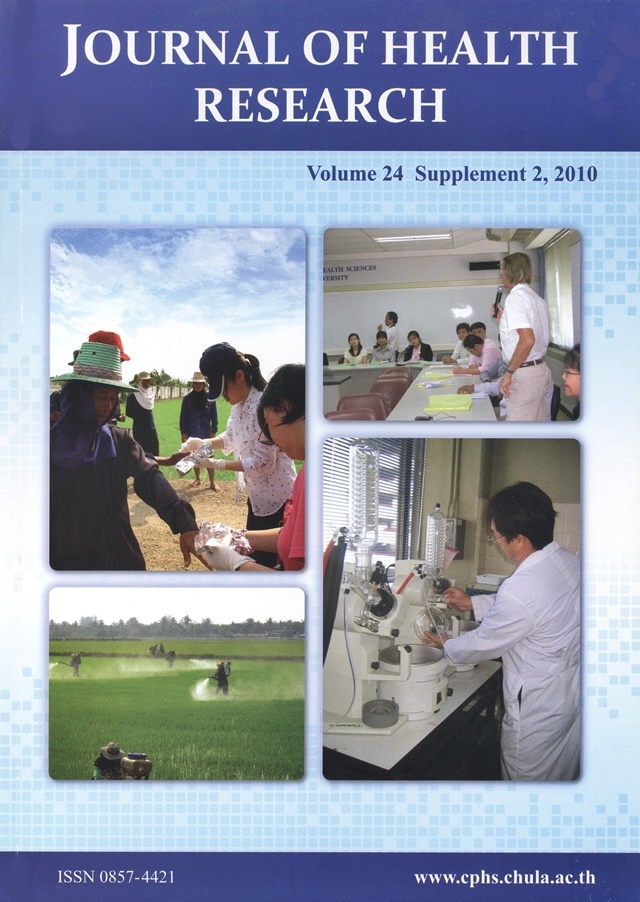Knowledge, Attitude, and Practice (KAP) of Diabetes Mellitus Type II Patients in Multidisciplinary Program at Diabetes Mellitus Clinic, Phanomphrai Hospital, Phanomphrai District, Roi-Et Province, Thailand
Keywords:
self-care behaviors, KAP, Phanomphrai hospital, Multidisciplinary program, Roi Et, ThailandAbstract
The aims of this research were to describe the socio-demographic characteristics of Diabetes Mellitus Type II patients joining "Multidisciplinary Program" at Diabetes Mellitus Clinic, in Phanomphrai Hospital and to identify the level of self-care knowledge, including attitude and practice of the patients. The study also focused on the relationship between patients’ socio-demographic characteristics and the level of self-care knowledge, attitude and practice. The subjects were DM type II patients who actually joined the program for a number of 430. The study also described the factors influencing the success and the non-success of the patients in their self care through an in-depth interview with 20 subjects in 4 sample groups each of 5 persons, they were 1) nurses 2) care givers of the patients 3) successful patients for their self care 4) unsuccessful patients for their self care. Based on the result of data analysis, DM type II patients joining the program were mostly females (70.9%) with an average age of 51 years old. All of them were Buddhists. Seventy-seven point two percent of them had an educational background lower than elementary school level. Furthermore, 79.8% of the subjects were married and 42.1% of them were farmers. The average patients’ household income was approximate 2,422 baht/month while their household expense was about 2,565 bahtlmonth. Out of 38 scores on knowledge, the subjects had a mean of 22.38 scores, out of 60 scores on attitude, the subjects had a mean of 47.55 scores, and out of 69 scores on practice, the subjects had a mean of 53.88 scores. By using Chi-Square Test between personal background, knowledge, attitude, and self-practice, the study has stated that self-practice has its relationship with patients’ knowledge, attitude, gender, education, occupation, field of work, frequency of blood sugar test and duration of diabetes suffering (p-value < .05). Factors influencing successful and unsuccessful patients in their self care practice included 1.) living near the hospital 2.) understanding the instructions and suggestions given by the program and could apply them in their daily life and 3) having a care-taker at home (for successful patients). On the other hand, the unsuccessful self-care behavior patients were influenced by 1 .) living in a remote area 2.) not understanding the instructions and suggestions given thus no application on their daily living 3.) not having a care-taker at home, and 4.) having an attitude that this program could not improve their health and that there was an unequal treatment thus not motivating them to join the program.Downloads
Published
2018-11-28
How to Cite
Ehnithiset, R., Hongsranagon, P., & Havanond, P. (2018). Knowledge, Attitude, and Practice (KAP) of Diabetes Mellitus Type II Patients in Multidisciplinary Program at Diabetes Mellitus Clinic, Phanomphrai Hospital, Phanomphrai District, Roi-Et Province, Thailand. Journal of Health Research, 24(Suppl. 2), 87–92. retrieved from https://he01.tci-thaijo.org/index.php/jhealthres/article/view/157581
Issue
Section
ORIGINAL RESEARCH ARTICLE







